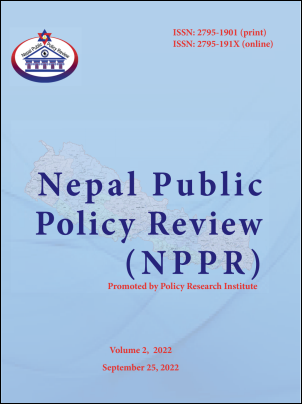Functionality of Rural Community Water Supply Systems and Collective Action: a Case of Guras Rural Municipality, Karnali Province
Keywords:
water, Ostrom's design principles, community-managed water systems, functionality of water systems, commons, water user groupsAbstract
Ensuring the long-term functionality of community-managed rural water supply systems has been a persistent development challenge. It is well established that the technicalities of keeping the systems going are impacted by complex political, social, financial, and institutional challenges. While the shift to federal, three-tiered governance allocates concurrent responsibility for drinking water management to the local government with federal and provincial governments, water and sanitation user groups continue to shoulder the management of local supply systems voluntarily. All three levels have jurisdiction over water-related services resulting in confusion of roles. This study focuses on the local level, where community management of water and sanitation decentralisation is the key approach in this complex tangle of diverse institutions with different actors managing and governing water. User Groups and their Committees in the Guras Rural Municipality of Dailekh district, Karnali province, in West Nepal, provided the case study, which was analysed using Ostrom's well-recognised Eight Principles for Sustainable Governance of Common-Pool Resources. The community-based model, established formally through the Water Resource Act 1992 (2049 BS), is critically analysed in light of the changing socio- economic context through the intervening years. The results highlight the need for stronger collaboration between the rural municipality and users to achieve good water supplies and the risks of losing access and voice in water management for women and marginalised people when inactive user groups are replaced by private or group interests taking control of the water access.
Downloads
Downloads
Published
How to Cite
Issue
Section
License
Copyright (c) 2022 Alok Rajouria, Tina Wallace, Deepa Joshi, Manita Raut

This work is licensed under a Creative Commons Attribution-NonCommercial 4.0 International License.





